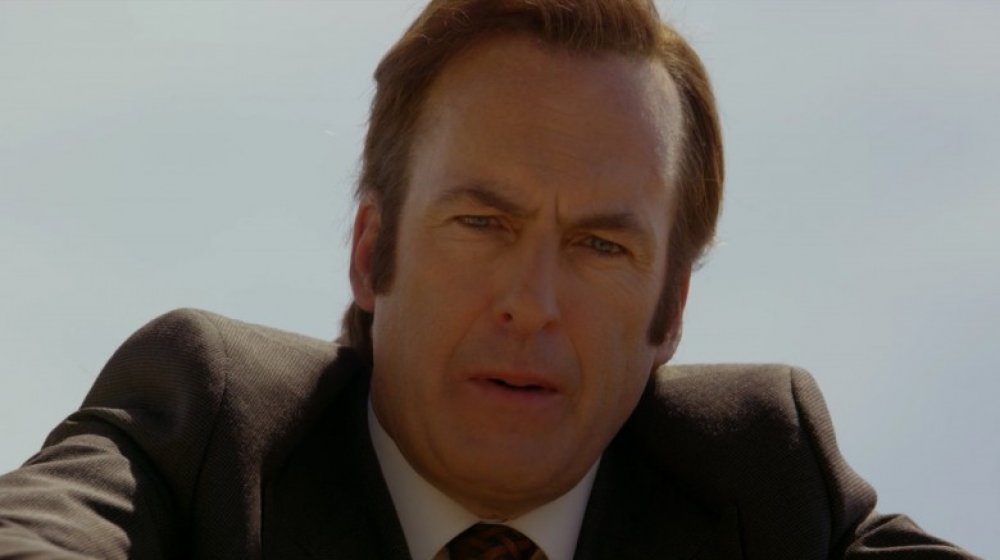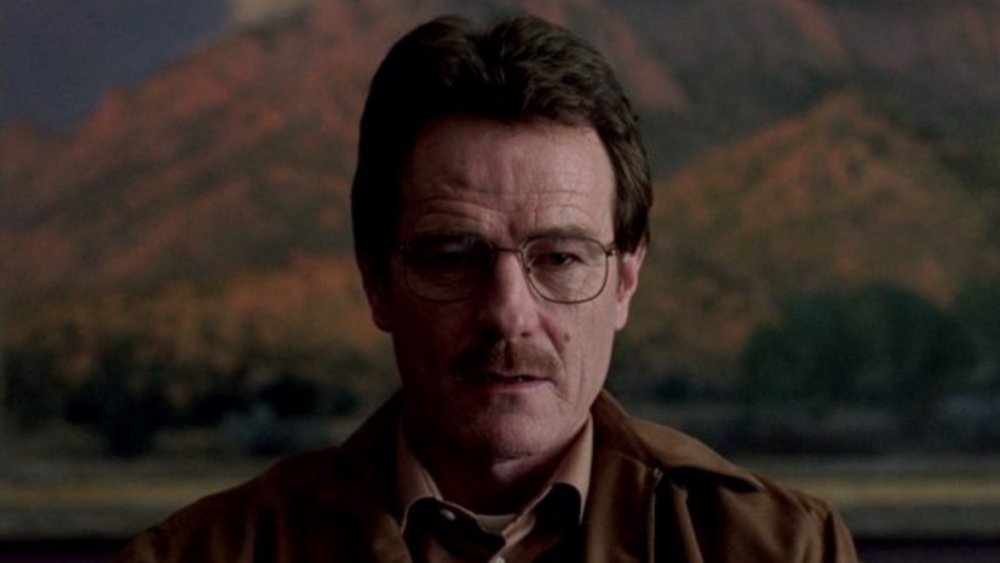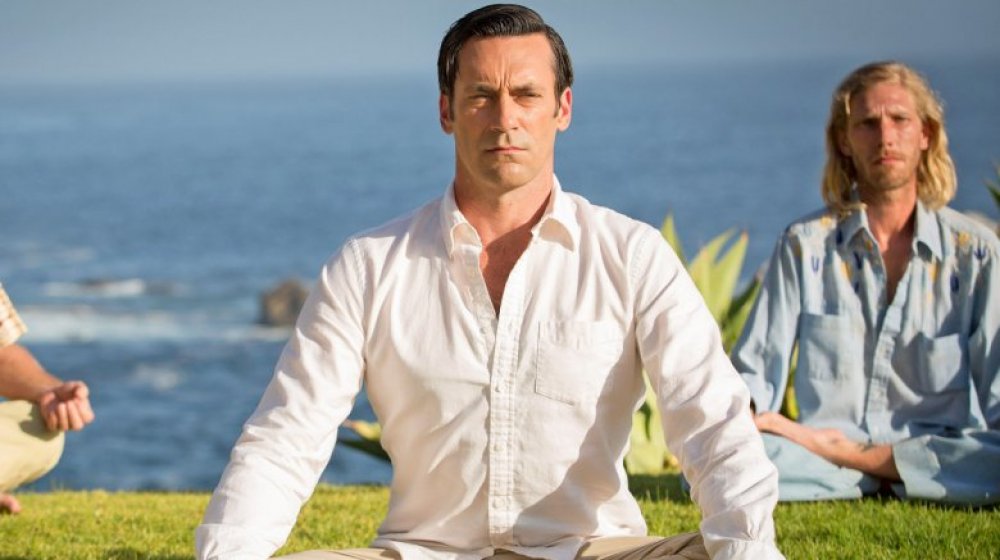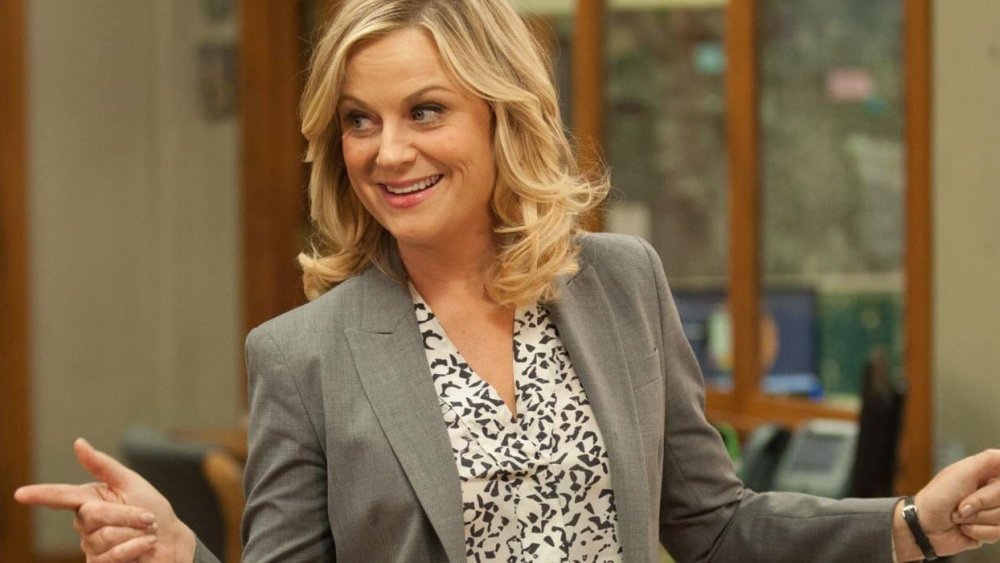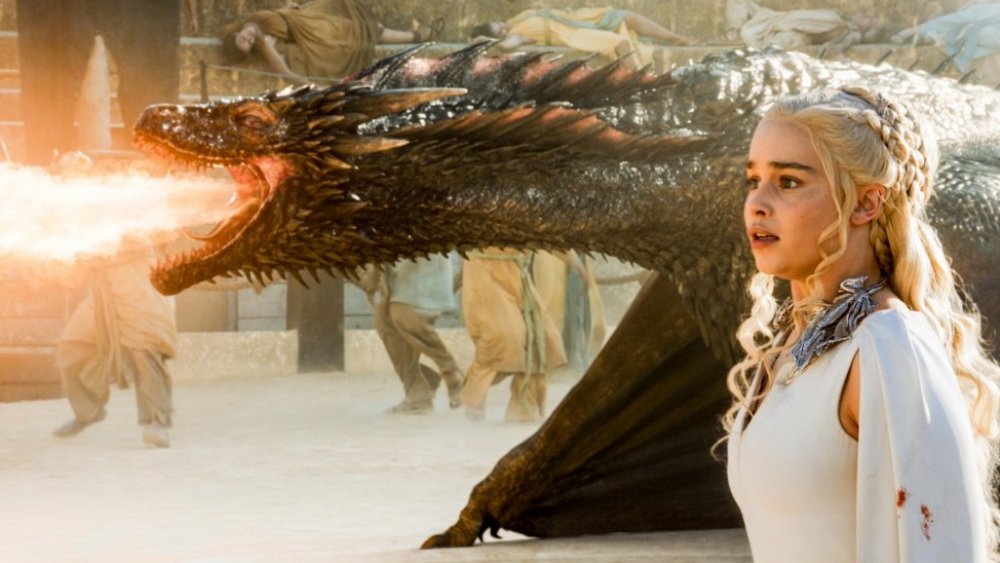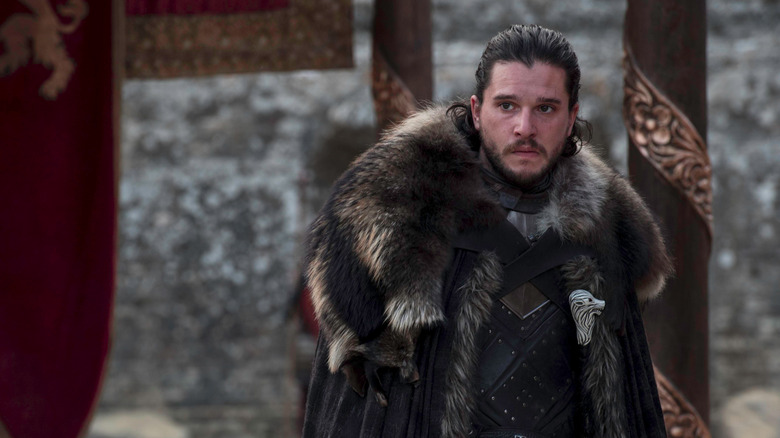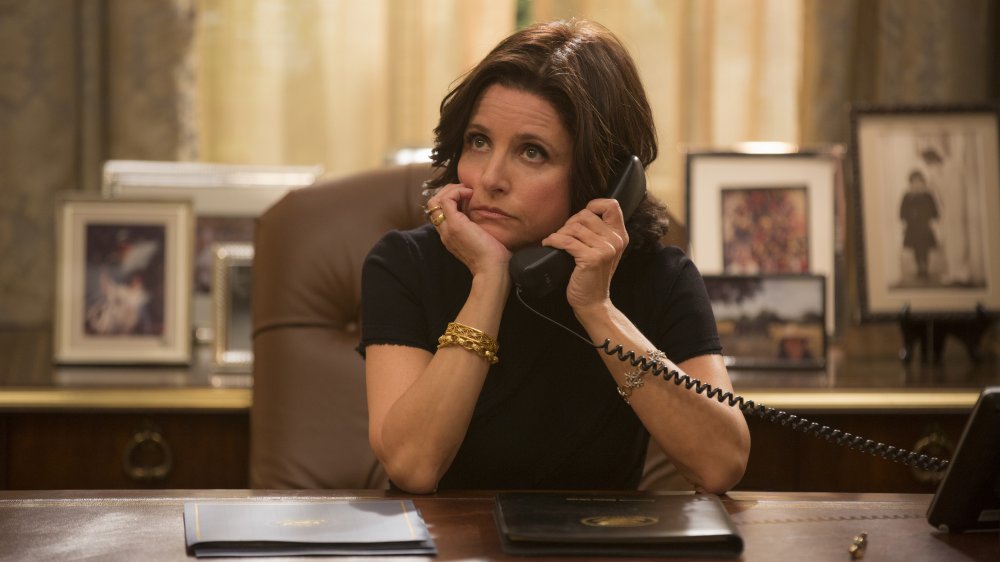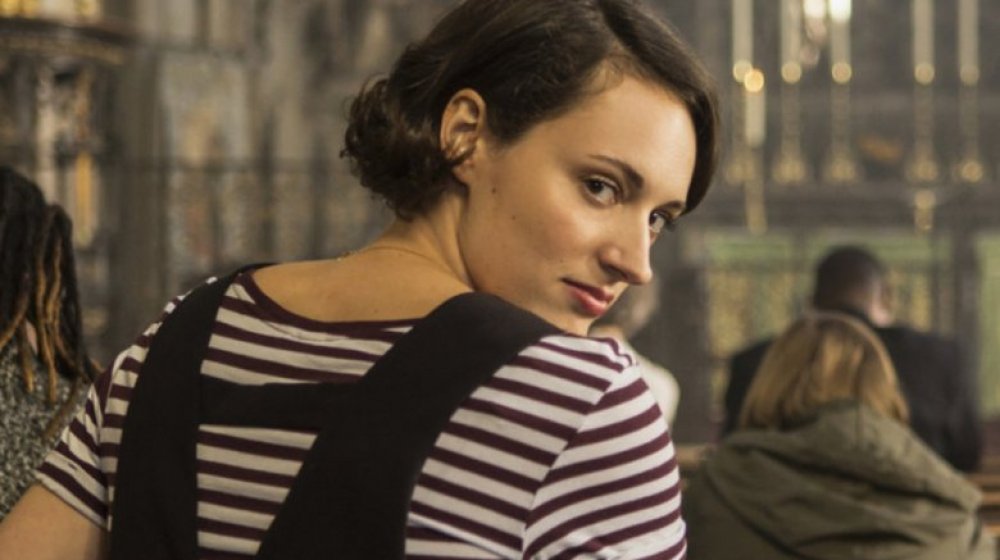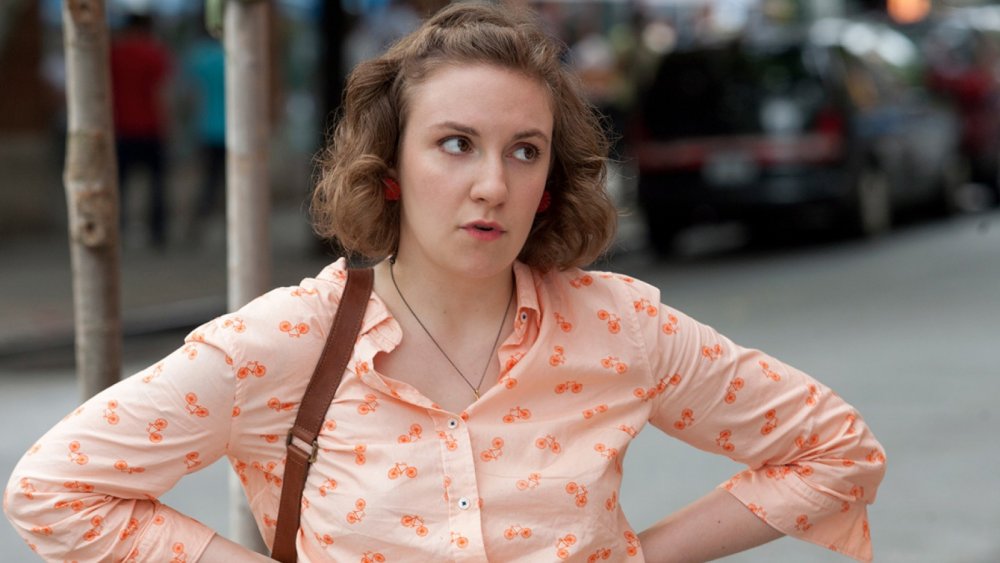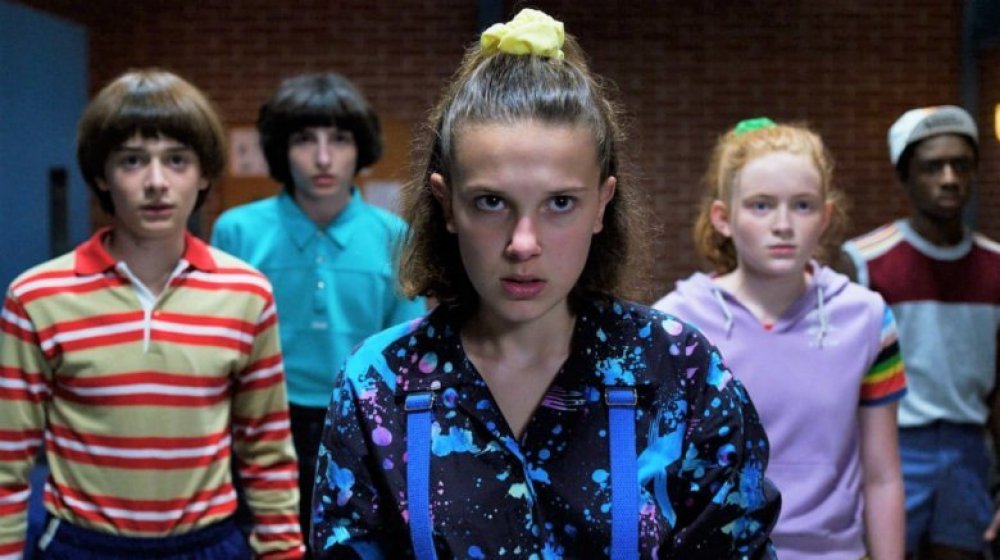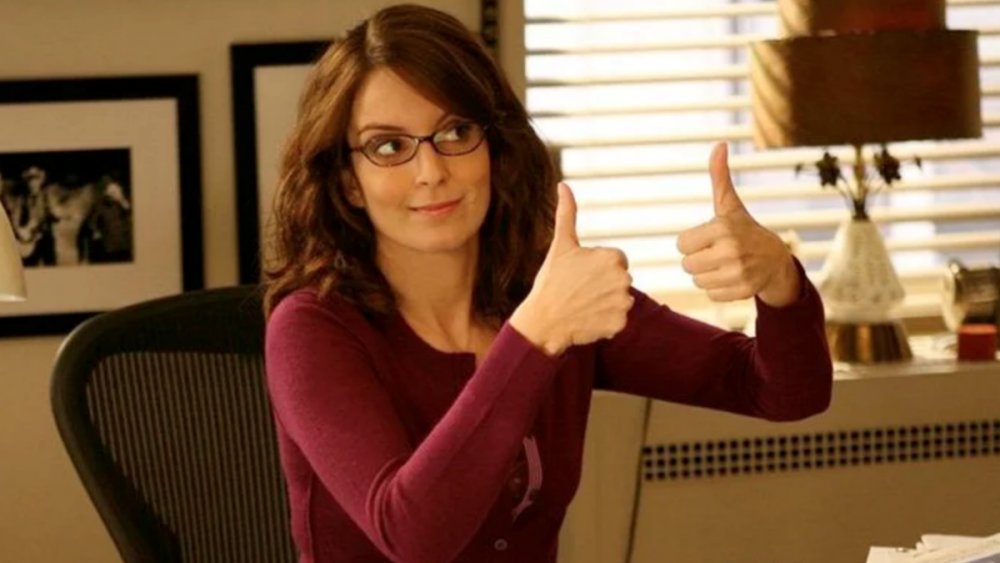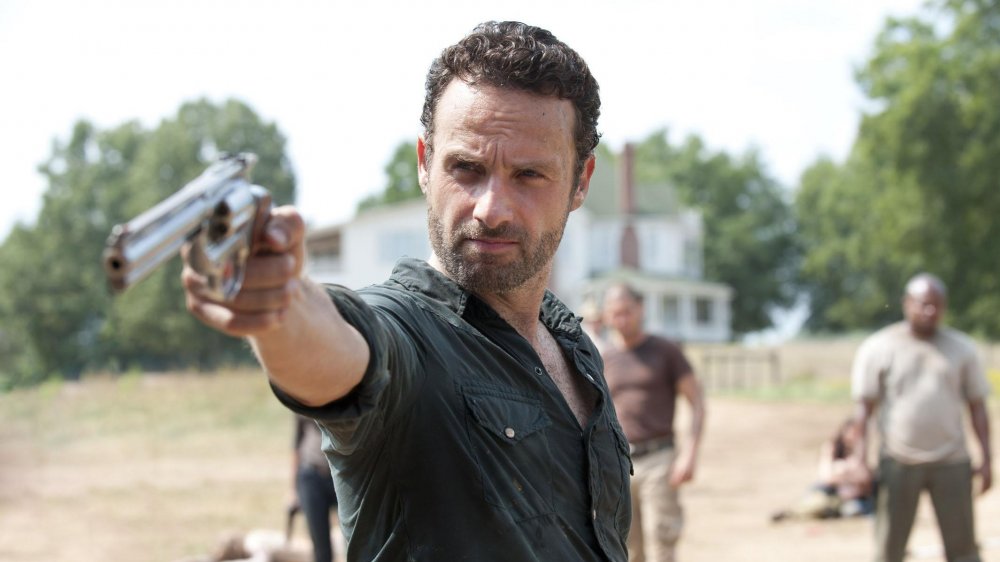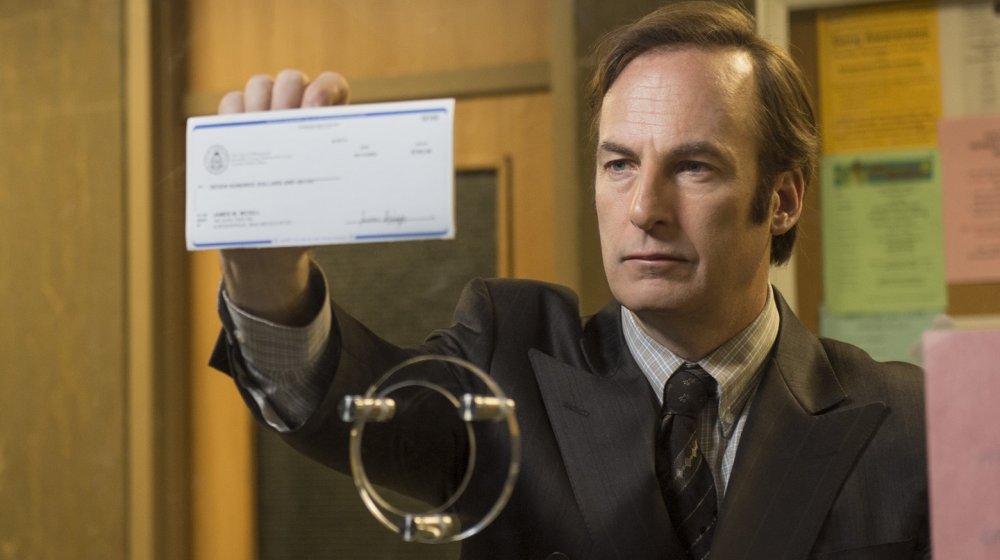The Most Iconic TV Characters Of The Past Decade
For a television show to become truly great, it needs one important thing — an unforgettable, indelible leading character. After all, viewers will likely lose interest unless a show features a character who grabs their attention right away, holds on tight, and never lets go. And in the Golden Age of Television, we've gotten characters all over the moral spectrum, from deeply flawed, Scarface-style villains to the most upbeat, upright people who've ever graced the small screen.
And whether you loved or hated these characters, there's no denying that their shared impact on the television landscape — thanks to the shows they inspired, the awards they won, and the trails they blazed — was enormous. From high school teachers turned drug kingpins and womanizing advertising executives to dragon queens and entitled Millennials, here are the most iconic television characters of the past decade.
Be warned, spoilers about all of these characters to follow!
We all broke bad with Walter White
Few characters have made as large of an impact as Walter White, played by Bryan Cranston in a career-defining role, who led AMC's Breaking Bad for five seasons. As the series begins, Walter, a mild-mannered high school chemistry teacher, gets the worst news of his life — he has stage-three lung cancer, and his recovery costs won't be covered by insurance. To help support his family, he teams up with a former student turned drug dealer and starts making crystal meth to earn money, all while quietly evading his DEA agent brother-in-law and facing off against hardened career criminals.
As we all know by now, Walter's intentions are relatively pure at first, but as he sinks further into the criminal underbelly of Albuquerque and its drug trade, he becomes entirely corrupted, eventually "breaking bad" and becoming a legendary kingpin in his own right while committing horrifying acts. Throughout his tenure as Walter, Cranston won several Emmys for the role, all of which were richly deserved. From his debut, standing in the desert in his underwear, to his final showdown against a gang of Nazis and subsequent death, Walter was always one of the most obsession-worthy characters on the small screen.
Jon Hamm embodied toxic masculinity with Don Draper
During the 2010s, AMC thrived thanks to two important antiheroes. In addition to Breaking Bad's Walter White, the network was also home to Mad Men and its lead character, Don Draper, played by Jon Hamm. On the series, Hamm defined toxic masculinity as Don, a smooth-talking advertising executive in New York with a beautiful wife, a family, and a high-powered career. However, Don struggles to keep any number of secrets. Not only does he constantly cheat on his wife, his name also isn't Don Draper. In fact, his real name is Dick Whitman, and after growing up impoverished and enlisting in the Korean War, he steals his friend's identity after the real Don Draper is killed in combat.
As he tries to get ahead in advertising, keep his family together, juggle his many women, and hide his many secrets, Don suffers an enormous decline, and thanks to Hamm's carefully considered performance, audiences get to watch this monolith of a man crumble over seven seasons. Ultimately, Don finds enlightenment and — as is suggested by Mad Men's ending — creates one of the biggest ad campaigns of all time. But watching Don struggle is one of the most fascinating journeys in television history.
Leslie Knope became one of TV's most iconic characters thanks to Parks and Recreation
One of the most relentlessly optimistic and cheerful characters ever to grace the small screen, Amy Poehler's Leslie Knope became one of the most influential and GIF-able characters around during the seven-season run of Parks and Recreation. In fact, she even created a real-life holiday known as Galentine's Day. As the deputy director of the Parks and Recreation department in the humble small town of Pawnee, Indiana, Leslie is so dedicated to and great at her job that it simultaneously inspires and irritates her friends and colleagues, but at the end of the day, Leslie usually comes out on top.
Surrounded by a supportive group of confidantes and loved ones, including husband Ben Wyatt (Adam Scott) and best friends Ann Perkins (Rashida Jones) and Ron Swanson (Nick Offerman), Leslie fails from time to time, but she always manages to pick herself back up, proving that passion and hard work always pay off. Thanks to Poehler's sunny yet grounded performance, Leslie Knope has become an amazing role model for girls around the world, and any time you need a pick-me-up, you can rewatch her triumphs and losses on Parks and Recreation.
Daenerys Targaryen is the mother of dragons and the queen of TV
When audiences first meet Daenerys Targaryen, played by Emilia Clarke, she's nothing but a fresh-faced, frightened young woman being sold into marriage by her vicious, power-hungry brother to a foreign warlord. However, throughout Game of Thrones' eight seasons, Daenerys eventually establishes herself as one of the biggest power players in the entire series. As the last remaining daughter of the ancient and royal Targaryen family, Daenerys is the first person in centuries to possess dragons. With three enormous monsters at her beck and call and a massive army behind her, Daenerys and her allies spend the vast majority of the series' narrative making their way towards Westeros to finally take the Iron Throne and assume power.
Unfortunately, absolute power corrupts absolutely, and despite her best intentions and fervent desire for justice, Daenerys ends up massacring countless innocent lives in her quest for the Throne, and she's ultimately murdered by her nephew and lover, Jon Snow (Kit Harington), before she can continue her violent domination. Even though Daenerys' descent into madness may have been a little abrupt, Clarke and the team behind Game of Thrones still managed to create one of the most layered and complex female characters on television.
Jon Snow is the greatest hero in Game of Thrones
Game of Thrones is full of unforgettable characters, but there's one hero who stands out from all the rest — Jon Snow. Played by Kit Harington, Jon Snow has a humble beginning as the alleged bastard of Ned Stark (Sean Bean), the warden of the North. And as the reject of his adoptive family, he chooses to "take the black" and guard the Wall with the rest of the Night's Watch, protecting Westeros from the dangers that lie in the far North.
As the show progresses, viewers learn to love Jon for his strong sense of honor, duty, and loyalty, which makes it all the more crushing when the men of the Night's Watch turn on Jon and leave him for dead at the end of Game of Thrones' fifth season. However, Jon is revived during season six, and we soon learn that Jon isn't a bastard at all but the legitimate son of Daenerys' brother and Ned's sister, making him the rightful heir to the Iron Throne.
However, Jon never ascends to power, largely because he has no desire to rule, but perhaps more importantly, he stops his aunt, Daenerys — with whom he has struck up a romantic relationship — from murdering innocent people by killing her, making an enormous personal sacrifice for the good of the realm. Game of Thrones is populated with antiheroes, but Jon stands out as a true hero.
We absolutely love and absolutely despise Selina Meyer
In the late 2010s, an award-winning HBO show about a power-hungry woman who will stop at nothing to gain absolute control came to an end. Game of Thrones? Nope. This story is set in a world that looks much more like our own. One of the best political TV shows ever, Veep tells the twisting, turning tale of Selina Meyer (small-screen legend Julia Louis-Dreyfus), the vice president of the United States who wants nothing more than to ascend to the presidency. Throughout seven seasons, Selina becomes more and more corrupted by her potential power, trying — and failing — to win the presidency multiple times and only gaining the office once by accident when her boss resigns.
Held up by a motley crew, all of whom are pushing their own agendas and would happily stab Selina in the back for their own gain, Selina eventually does win the presidency but at an enormous cost — the betrayal of her most loyal and loving aide, Gary (Tony Hale), the only person in Selina's life who truly loves her. Louis-Dreyfus ultimately won six consecutive Emmy Awards for the role, and it's no surprise why. Thanks to Louis-Dreyfus' pitch-perfect performance and the show's incredibly sharp writing, Selina remains one of the most unlikable, acerbic, quick-witted, and unexpectedly sympathetic characters in television history.
Fleabag brought a new type of character to the small screen
It's pretty impressive that one of the decade's most important characters arrived at the close of the 2010s and doesn't even have a proper first name, but that just speaks to how iconic Fleabag from Fleabag has become over an incredibly short period of time. Originally created by Phoebe Waller-Bridge for a one-woman show for the Edinburgh Fringe Festival, Fleabag is a sexually uninhibited, heavy-drinking, chain-smoking young woman trying to navigate life, love, and past traumas in central London, all while grappling with a difficult family life. And from the moment she shows up, she feels like the audience's best friend, thanks to clever fourth-wall breaking by Waller-Bridge.
When Fleabag mourns her best friend, falls in love with an attractive priest, or deals with her troublesome family, the audience goes right along with her, experiencing her tumultuous and ultimately triumphant journey. In 2019, Waller-Bridge elected to end the series with its second season, revealing that she didn't want to return to the character (despite winning several Emmys). Audiences will miss Fleabag, but her transformative time on television helped to create a new brand of female antiheroes for the end of the 2010s, changing the television landscape for the better.
Hannah Horvath is one of the most controversial TV characters of the past decade
In the wake of male antiheroes like Don Draper and Walter White, showrunner Lena Dunham created one of the most controversial television characters of all time with Hannah Horvath, setting the standard for dysfunctional female antiheroes long before Fleabag came along. As an incredibly unflattering portrait of the "entitled Millennial," Hannah, the leading character of Girls, starts the series by telling her skeptical parents — who are refusing to fund her "groovy lifestyle" in Brooklyn any longer — that she might be the voice of her generation, or at least "a voice" of "a generation," perfectly encapsulating her self-centered attitude and utter lack of awareness.
Along with her self-centered friends and erstwhile boyfriend, Hannah goes through the ups and downs of living out your late 20s in New York City, and though her adventures certainly kept audiences divided on a nearly constant basis, there's no denying that she left a significant impact on culture as a whole. Hannah — and, by extension, Dunham — made waves during her time on the air, but in the end, this controversial character is nothing short of iconic.
Eleven steals the show in Stranger Things
In the summer of 2016, Netflix took excited audiences to the seriously spooky and supernatural town of Hawkins, Indiana, where a young boy named Will Byers (Noah Schnapp) not only goes missing but seems to be able to communicate with his mother (Winona Ryder) while lost in a different realm. Further complicating everything, Will's confused friends have another issue on their hands — the sudden appearance of a mysterious young girl with superpowers, known only as Eleven.
Played by newcomer Millie Bobby Brown, Eleven ends up adapting to her new life in Hawkins after escaping an insidious government testing site, and she constantly saves her friend and eventual love interest, Mike Wheeler (Finn Wolfhard), her adoptive father, Jim Hopper (David Harbour), and everyone else in Hawkins from hungry demogorgons and dangerous Russian spies. In the hands of a lesser actress, a character like Eleven could've come off as patently ridiculous, but Brown handles the role with a gravity beyond her years. And it's not hard to understand why Eleven has inspired everything from memes to Halloween costumes. In the wake of Stranger Things' third season, which saw Eleven embracing her teenage years, the character had even more depth to explore, and we can't wait to see where she goes next.
Liz Lemon is messy and amazing
One of the most unapologetically erratic and messy characters on television, Liz Lemon, the leading lady of 30 Rock, provided some of the biggest laughs of the entire decade, all while feeling rooted in reality. Played by showrunner and creator Tina Fey, Liz serves as a fresh spin on the stereotypical New York woman trying to "have it all," and that involves working as the head of an SNL-style sketch show with decidedly middling reviews, constantly battling her narcissistic stars and incompetent writing stff, and dealing with her boss, high-powered executive Jack Donaghy (Alec Baldwin).
Beyond the catchphrases she spawned — from "that's a dealbreaker, ladies!" and "blerg!" to "I want to go to there" — Liz Lemon is a perfect parody of a New York career woman, and despite her more heightened moments, like when she tries to get out of jury duty by dressing as Princess Leia or when she hallucinates Oprah Winfrey on a plane, Liz always feels like the funniest friend you know. As the defining role of Fey's career thus far, Liz Lemon is the SNL veteran's best creation, and she'll keep audiences laughing for years to come.
Rick Grimes was one of the best heroes of the past decade
One of the most unforgettable images in recent television memory is that of a lone man making his way down a desolate highway into the abandoned city of Atlanta, and the man at the center of that image ended up becoming just as iconic as the opening shot itself. As Rick Grimes, Andrew Lincoln brought gravity and seriousness to his central role in The Walking Dead, balancing Rick's need to survive with his strong moral center and providing an obvious protagonist as the show took off. By struggling to maintain his humanity and not attack the living, even people with bad intentions, Rick gave viewers a glimpse into the emotional toll of a zombie invasion, putting a fresh and real spin on a familiar genre.
Ultimately, Lincoln chose to leave the show after eight years and nine seasons. And while many of Rick's friends believe that he died saving them, Rick actually survives, leaving behind a strong legacy among those he loved. The Walking Dead will soldier on without Lincoln and Rick, but there's no denying that Lincoln's performance helped turn The Walking Dead into the phenomenon it ultimately became.
When it comes to iconic TV characters, Saul Goodman can hold his own against Walter White
Launching a spinoff based on a single character isn't always a great idea. But luckily for AMC and showrunner Vince Gilligan, Better Call Saul is this generation's Frasier rather than the modern-day Joey. Based on Bob Odenkirk's sleazy lawyer from Breaking Bad, Better Call Saul is an origin story about how a small-time ambulance chaser named Jimmy McGill becomes the greasy, conniving attorney known as Saul Goodman. The show also features plenty of Breaking Bad veterans aside from Odenkirk, including Giancarlo Esposito and Jonathan Banks as Gus Fring and Mike Ehrmantraut, respectively, giving audiences an insight into how each of these seedy characters come into being.
Despite the fact that he's trying to make a better life for himself, Saul, a former con artist working as a lawyer, finds himself sucked into Albuquerque's criminal underground just as Walter White would much later, and watching Saul struggle to avoid becoming the bad guy is just as thrilling as any single moment on Breaking Bad. Thanks to Odenkirk's gripping central performance, Saul Goodman has ceased to be a comic relief character. Instead, he's become a fully iconic character in his own right.
